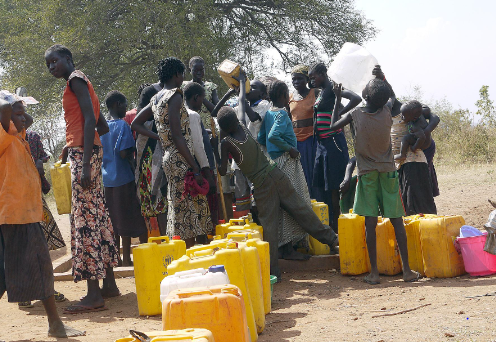Over 1014 returnees in the Rubkuai area of Mayendit County in Unity State are currently facing a severe shortage of clean drinking water.
The returnees fled the conflict in Sudan and started arriving in the area in May.
Kina Riek Gatluak, a returnee, told Radio Tamazuj Sunday that they have had no access to clean water for nearly three months and appealed to local authorities, aid agencies, and the government to intervene.
“Since arriving, we returnees have been grappling with water scarcity in Rubkuai Payam,” Kina explained, “From June until now, we have not had access to safe drinking water. We continue to lodge complaints with the government of Unity State and UN agencies, urging them to provide us with clean drinking water.”
Another returnee, Gai Deng, revealed that due to the lack of clean water, many people have resorted to drinking the dirty water from the swamp, leading to numerous illnesses.
“The returnees are facing various water-borne diseases such as diarrhea as a result of the shortage of clean drinking water,” he said “Our people always fight at the few safe water points in Rubkuai Payam because the boreholes are not enough for us.”
Mathew Ran, the Mayendit County Relief and Rehabilitation Commission (RRC) coordinator, confirmed that at least 1014 returnees in Rubkuai Payam do not have safe drinking water and said the Samaritan’s Purse International Relief is partnering with the RRC to address the crisis.
“We urge Samaritan’s Purse to continue providing the community with boreholes to improve the quality of life,” he said.
Reports indicate that Tutnyang and Rubkuai payams in Mayendit County have long struggled with shortages of clean water.
Samaritan’s Purse International Relief is the only humanitarian agency drilling boreholes in the affected areas but the demand for clean water outstrips the available water points.
“15 boreholes are not enough for our population, including the new arrivals, the returnees,” RRC’s Ran added.




